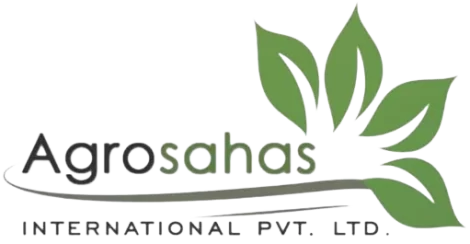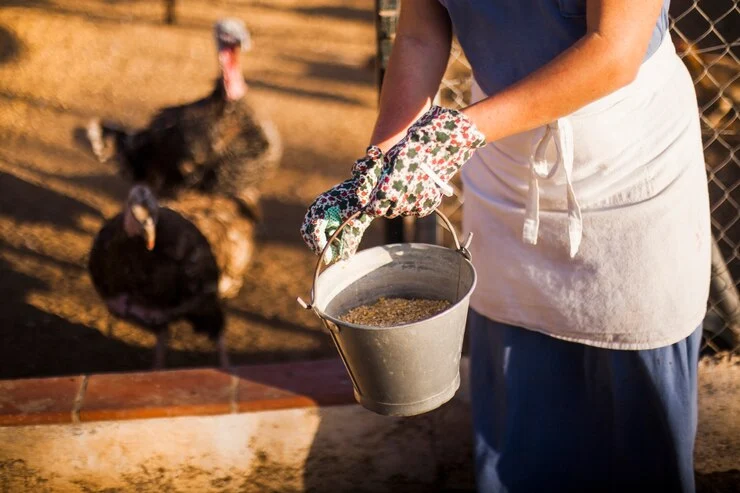At Kukuchku Animal Feeds and Concentrates, we understand that every livestock farmer has unique needs. The nutritional requirements of your animals depend on their species, breed, age, growth stage, and the specific production goals you aim to achieve—whether that’s increasing milk production in dairy cows, enhancing egg quality in layers, or accelerating weight gain in pigs. That’s why Kukuchku specializes in tailored nutrition, offering customized feeds to optimize the health and productivity of your livestock.
In this blog, we’ll explore how Kukuchku formulates feeds for different livestock, the most important nutrients for animal growth, common concentrate feed options, and the feed processing methods that improve feed efficiency. By the end, you’ll understand how Kukuchku helps you provide the best nutrition for your animals, maximizing their productivity and your farm’s success.
How Do You Formulate Feed for Livestock?
Formulating feed for livestock is a complex process that balances the nutritional needs of the animals with cost efficiency and availability of raw materials. At Kukuchku, our nutritionists and feed experts use scientific methods to develop optimal feed formulas for various types of livestock. Here’s how we approach feed formulation:
- Assessing Nutritional Requirements: The first step in formulating feed is understanding the specific nutritional needs of the animals. This varies based on species (pigs, cows, poultry), their production phase (growth, reproduction, lactation), and the desired outcome (milk, eggs, meat).
- Choosing the Right Ingredients: After determining the animals’ nutritional needs, we select high-quality ingredients to meet those needs. These include grains like maize and wheat, protein sources such as soybean meal or fish meal, and essential vitamins and minerals.
- Balancing Nutrients: The next step is to balance key nutrients, including proteins, carbohydrates, fats, vitamins, and minerals. We aim to create a balanced diet that promotes growth, productivity, and animal health while minimizing feed costs.
- Feed Testing and Adjustment: Before launching a feed formula, Kukuchku tests the blend to ensure it meets quality and nutritional standards. Based on feedback and results from farmers, we make any necessary adjustments to improve the feed’s performance.
By customizing feed based on the needs of different livestock, Kukuchku ensures that farmers get maximum returns from their investment in animal nutrition.
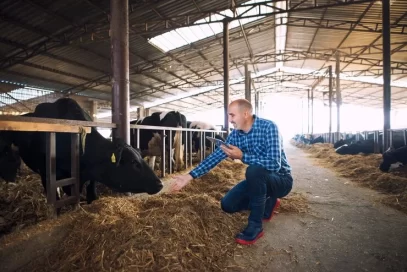
What Is the Most Important Nutrient to Feed Livestock?
The most critical nutrient for livestock is protein. Proteins are essential for growth, tissue repair, reproduction, and milk production. Without adequate protein intake, livestock will struggle to reach their full growth potential or meet production goals.
However, protein isn’t the only vital nutrient. Carbohydrates provide energy for the animals, helping them carry out essential functions like movement, growth, and maintaining body temperature. Fats are also necessary for energy storage, while vitamins and minerals play crucial roles in maintaining the health of organs and systems such as bones and immune function. Therefore, while protein is crucial, a well-rounded feed containing all these nutrients is key to maintaining healthy and productive livestock.
What Are 10 Examples of Concentrate Feeds?
Concentrate feeds are nutrient-dense supplements that are added to the diets of livestock to boost productivity. Here are ten common examples of concentrate feeds that Kukuchku provides for various livestock:
- Soybean Meal – Rich in protein, it’s a top choice for poultry and pig feeds.
- Maize Meal – A high-energy source commonly used across all livestock feeds.
- Cottonseed Meal – High in protein and suitable for cattle feeds.
- Fish Meal – Another protein-rich ingredient, often used in poultry and pig feeds.
- Wheat Bran – A fiber-rich concentrate that aids digestion in livestock.
- Sunflower Cake – A protein source derived from sunflower seeds, ideal for ruminants.
- Molasses – A carbohydrate-rich additive that enhances feed palatability and energy levels.
- Groundnut Cake – A byproduct of peanut oil extraction, rich in protein and fat.
- Rice Bran – A valuable energy source for pigs and poultry.
- Distillers’ Dried Grains with Solubles (DDGS) – A byproduct of ethanol production, high in fiber and protein.
Kukuchku blends these concentrates with roughages or complete feed products to offer balanced nutrition, tailored to the needs of specific livestock.
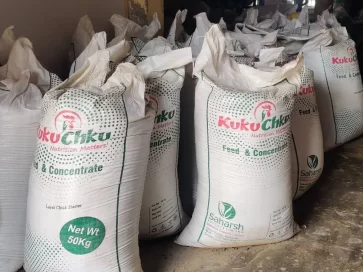
What Feed Processing Methods Are Applied to Livestock Feed?
The quality and digestibility of feed can be significantly improved through processing. At Kukuchku, we apply various feed processing methods to ensure optimal nutritional availability and palatability for livestock. Here are the main feed processing techniques we use:
- Grinding: This method involves breaking down the size of the feed ingredients, improving digestibility. For instance, grinding maize into fine particles increases its surface area, making it easier for animals to digest and absorb nutrients.
- Pelleting: Pelleting feed makes it easier for livestock to consume and reduces waste. Pellets are compressed, making the feed denser and reducing the amount of dust, which animals might otherwise avoid eating.
- Crushing: For ingredients like grains and seeds, crushing helps make the nutrients more bioavailable. This process is commonly used in feeds for pigs and poultry.
- Steam Flaking: This process involves steaming and rolling grains to increase digestibility and nutrient availability. It’s commonly used for cattle and poultry.
- Mixing: Proper mixing of ingredients ensures uniform distribution of nutrients in each portion of feed, so every animal receives balanced nutrition.
- Ensiling: For roughages like maize silage, ensiling is a method of fermenting the forage to preserve its nutritional value. It’s an important technique for dairy and beef cattle feeding during dry seasons.
Kukuchku uses these advanced feed processing methods to maximize feed efficiency and ensure that livestock get the best possible nutrition.
Tailored Nutrition: Why Choose Kukuchku?
At Kukuchku, we believe that no two farms are the same. Every livestock farmer has different goals and challenges, and that’s why we specialize in offering customized feed solutions. By working closely with our customers, we can tailor feed formulations that address the specific needs of their livestock, leading to healthier animals and improved productivity.
Here’s why tailored nutrition from Kukuchku makes a difference:
- Improved Performance: When feeds are customized to suit the nutritional requirements of specific animals, farmers see significant improvements in growth rates, milk yields, and egg production.
- Cost-Effectiveness: Custom feeds optimize nutrient availability, meaning that less feed is wasted, and farmers save on feeding costs in the long run.
- Healthier Animals: By providing the right balance of nutrients, our feeds help reduce disease incidences and boost the overall health of livestock.
- Higher Productivity: Whether you’re aiming for faster weight gain, better milk quality, or more eggs, our tailored feeds ensure that your livestock performs at its best.
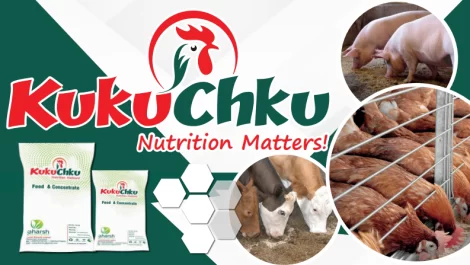
Conclusion
Kukuchku Animal Feeds and Concentrates is committed to providing farmers with customized nutrition solutions that enhance livestock health and productivity. From selecting high-quality ingredients to applying advanced feed processing techniques, we ensure that every bag of feed meets the unique needs of your animals. By working with us, you can be confident that your livestock will receive balanced, nutritious feeds designed to help them thrive.
